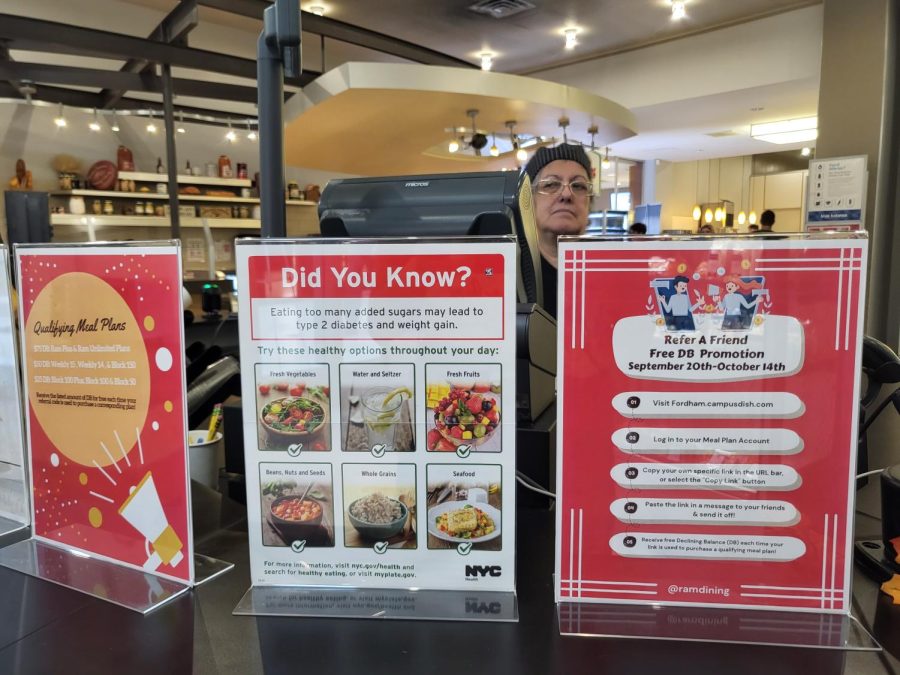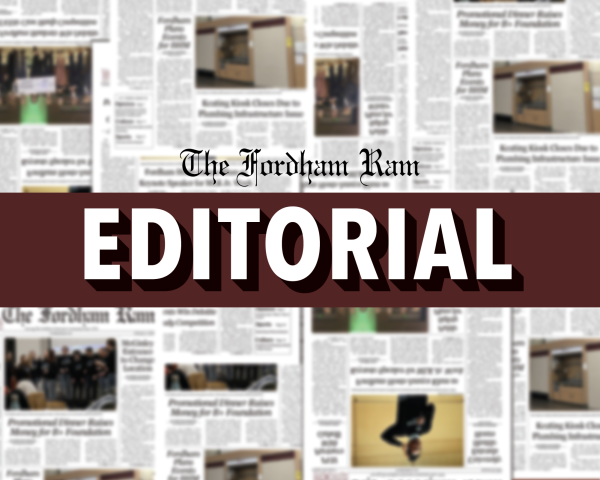Babylon is a Rare Glimmer of Green from Aramark
In the McShane Campus Center’s Marketplace, Fordham recently introduced a new micro-farm display: Babylon. Babylon, a glass box housing a micro farm, also features a large standee that advertises the sustainability, health and the generally net-positive eco-friendliness in the display.
According to Deming Yaun, the university’s dining contract liaison, the greens grown within the Babylon display will be directly used in select foods from the Marketplace cafeteria.
The introduction of Babylon is not the only initiative in recent memory that suggests the university is starting to promote healthier, more sustainable and greener eating habits among its students. An email from Fordham Hospitality Services showcased “La Latina Cocina,” a limited-time Latin-based dish pop-up at both campuses and Vegan Pizza pop-ups also at both campuses. A sign at the front of the Marketplace advises students to try fresh vegetables, fruits, water, beans, whole grains and seafood to curb Type 2 Diabetes and weight gain.
While the sentiment for healthier eating practices is well appreciated, these promotions are still a relatively small portion of the food served on campus (it isn’t easy to find fresh seafood on campus). This is largely because a near-total majority of food present on campus is serviced and provided by Aramark.
According to Is It Bad For You?, an organization of Board Certified medical doctors and nutritionists, Aramark has “a long, checkered past with providing sub-par food” and its food “should be avoided as much as possible.” The site also suggests an alternative from Aramark: a homemade lunch.
The website goes through a number of incidents in which Aramark has shown negligence in clean food distribution (including maggots found in food preparation for Michigan prisoners) and generally cutting corners for food safety, suggesting that Aramark’s for-profit mindset may be actively unhealthy for students who are forced to consume these products.
Chances are, someone you know, be it a classmate or roommate, has been the victim of some form of food poisoning from on-campus meals.
Outside of meals prepared by Aramark or the small amounts of healthy food promotions, the other alternative students can find are the processed and manufactured food products in stock at P.O.D. (or Provisions on Demand).
These products, like Amy’s Kitchen frozen meals, dry ramen, chips and snack foods, are notoriously unhealthy. There are not many options on campus available to students looking to better their nutritional habits.
Overall, the quality of food on Fordham’s campus is lacking in nutritional value or health benefits, despite Fordham’s advertising otherwise.
There are multiple avenues that the university can take to improve the quality of its food, the largest and most substantial change being to cut ties with Aramark. There have already been a number of student movements and calls-to-action for the company’s removal, both at Fordham and at many other universities across the country.
Until Fordham cuts ties with the perpetually disappointing Aramark, the quality of food on this campus and Fordham dining will continue to not meet the bare minimum of the nutritional needs of its students.











































































































































































































